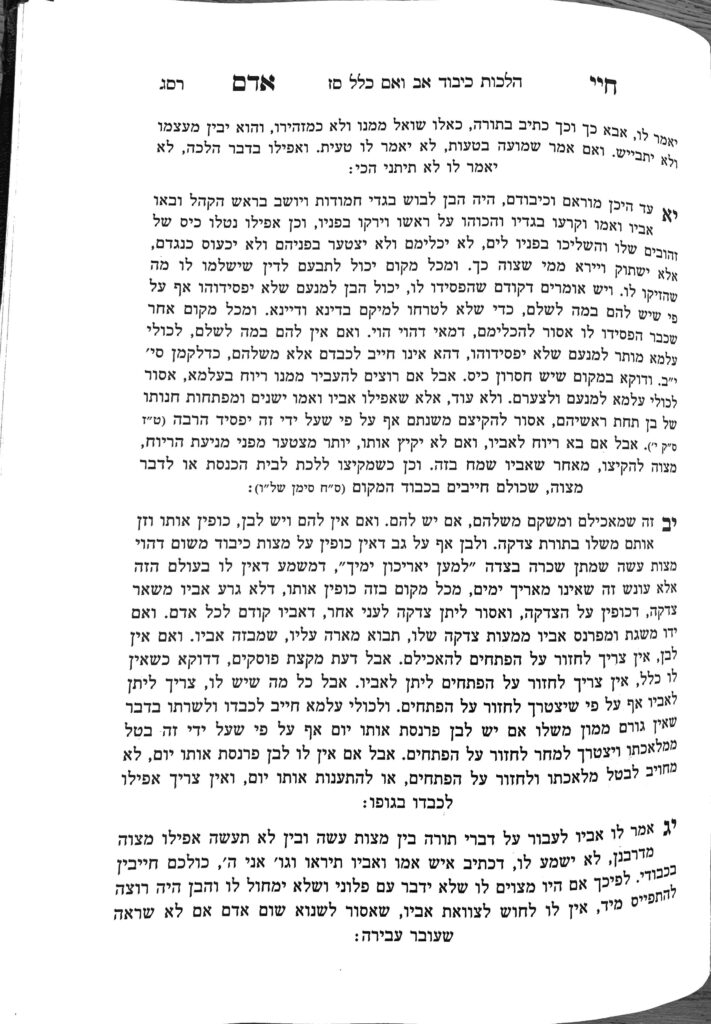We are beginning siman 12. As we mentioned in the previous siman, the Chayei Adam writes that the financial outlay for kibud av v’eim is the responsibility of the parents, and the child’s chiyuvim are only the acts of service. Thus, for example, the child may be chayav to feed their parents, but the expenses for the food itself comes from the parents. Moreso, since we see from the Gemara that the mitzvah is the physical acts of service, paying for the food would not be considered kibud av v’eim.
However, the Chayei Adam writes that if the parents cannot afford to support themselves, but the child can afford to support the parents, beis din can force the child to support his parents. Beis din’s ability to force support is not due to kibud av v’eim, since, as we just learned, it is not part of the mitzvah, but rather as tzedakah. Tzedakah to family members generally takes precedence to other needs, and one’s parents are arguably the most important family members one should support. In other words, although a child’s financial support of their parents is not considered kibud av v’eim, one’s parents are no worse than any other poor person which a person has a mitzvah to support.
More than just a mitzvah, the Chayei Adam extends this din past the regular parameters of kibud av v’eim and writes that there is a din kefiyah, that beis din can force the child to support the parents. We have learned that when beis din has its full function, it has the power to force people to do mitzvos, if necessary. Additionally, beis din could administer corporal punishment until a person agrees to fulfill the mitzvah incumbent on them.
However, there are some exceptions to this rule. If the Torah describes the reward for the mitzvah, Chazal understood that it is not their responsibility to enforce it. If the Torah gives the reward, the Torah itself gives the motivation to do the mitzvah, so there is no need for beis din to intervene. Since the Torah tells us that the reward for kibud av v’eim is living a long life, beis din would not intervene when one is neglecting their responsibilities.
However, over here, the Chayei Adam writes that we can force the child to support their parents. He explains that since the financial support is not considered kibud av v’eim, but rather tzedakah, it can be enforced, because beis din has the power to enforce the mitzvah of tzedakah since it does not have a reward written for it in the torah.
Summary
The chiyuv kibud av v’eim is limited to acts of service and does not include financial support. However, a child who has the means may be chayav to support his parents by dint of the mitzvah of tzedakah. If beis din had its full power, it could force a child to support their parents in such a situation, in the same way they could force a person to fulfill any mitzvah.



